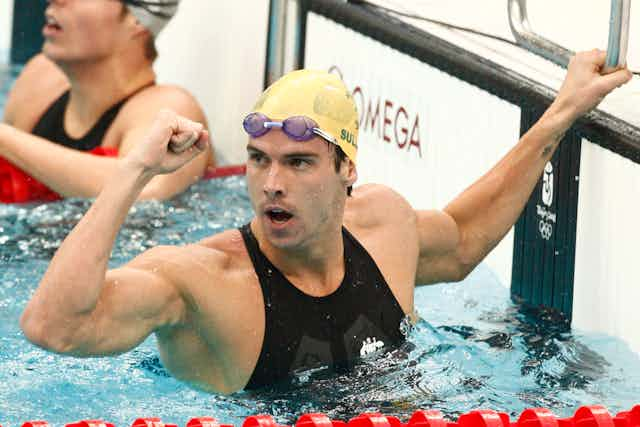As the Commonwealth Games enters its last days, Australian sprinter John Steffenson announced he’s hanging up the spikes after the tournament is over, and diver Matthew Mitcham hinted at retiring too.
Before the Games even began Australian swimmer Eamon Sullivan, after three Olympic medals and numerous Pan Pacific, Commonwealth and World Championship titles, announced his retirement due to an ongoing shoulder injury:
In the end my body has let me down, so I’m very disappointed, but it’s the right time.
They now move into “retirement” from competitive sport. So how can they make sure the transition is an easy – and healthy – one?
During retirement, an athlete is forced to transition to life after sport. Sometimes athletes can choose when they hang up their boots (or goggles), but often they are forced into retirement due to injury or age.
As a result this may potentially affect their wellbeing. In addition, athlete involuntary retirement can elicit psychological and emotional difficulties including:
- decreased self-confidence
- more frequent feelings of anger, anxiety and depression
- substance abuse.
So how can elite athletes keep themselves psychologically healthy after their competition days are over?
Sustaining a sense of self
Waking to the alarm at 4:30am, being on the pool deck by 5am, following that monotonous black line up and down the pool, swimming up to eight kilometres per session, heading off to school/work and then doing it all over again after hours is a way of life for most swimmers.
For 10 years, my day ran in this format. Many asked why I did it. My response was simple – I loved the sport and the social network that the sport provided.
I did not reach the pinnacle of my sport – State and National Championships were the highlights of my swimming career – so my transition to “real life” was not as daunting as it may be for most elite athletes.
But for those who have been the best or near the top of their field for decades, a transition can provide an opportunity for psychological growth as well as a danger for psychological deterioration.
While an athlete’s dedication to sport often leads to a strong athletic identity, which can have positive and negative consequences, they also risk experiencing difficulties after their sports career.
The loss of the athlete role after retirement may potentially not only affect their athletic identity, but also their overall sense of self.
Assisting athletes cope with career transition is one of the most commonly encountered issues for applied sport psychologists and the quality of adaptation to post sport life is significantly determined by an athlete’s degree of voluntariness.
Coping and in control
Reasons for career termination appear to play a significant role for adjustment to post-career life.
Potentially, athletes who are unable to continue elite sport due to performance decrements (such as age, injury or deselection) are forced into retirement due to circumstances that are out of their control.
Involuntary retirement may have complicating consequences for the adjustment process, but a subjective feeling of control seems to facilitate the transition to post-career life.
The perception of control fosters mental health, successful development and heightens feelings of self-efficacy.
Recently it’s been shown that better educated athletes have more professional knowledge and more occupational opportunities, so experience fewer occupation-related difficulties during their post-sports career life.
To assist with the career transition process, it’s recommended that strategies such as post career planning (continual education, occupational endeavours and activities related to athletes’ social network) be implemented.
It is also important to assist athletes with interventions that provide subjective control over the retirement process.
A “readiness for transition” plan needs to identify short- and long-term planning, resources to cope effectively with transition barriers (such as being injured), job and vocational training and social support networks.
By maintaining a strong support system without feeling as though the factors surrounding their retirement are out of their control, athletes can have a very rewarding and fulfilling transition to a life without competition.

